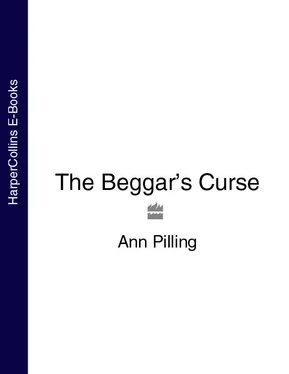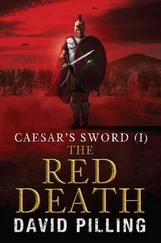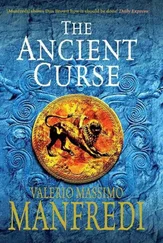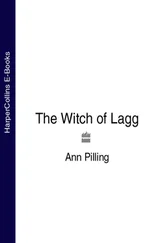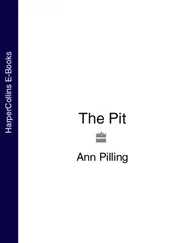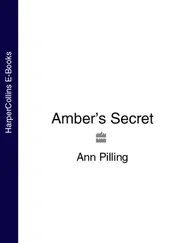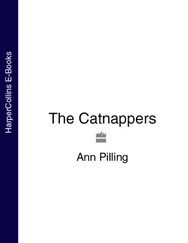But Colin had turned one of the postcards over, to examine the back. Suddenly he gave a loud snort. “Stang Village,” he read, “1938. These pictures are nearly fifty years old. Isn’t that typical! Oliver’s father’s really stingy you know, he’s probably been hanging on to these for years, ‘just in case’. Honestly .”
“Those ducks have probably died of pollution by now,” Prill said gloomily. “There’ll be a motorway running through the middle, I expect, and they’ll have a petrol station, and a great big supermarket.”
Angela laughed loudly. It was such a hearty cackle that even Prill smiled. Then she caught sight of the ironing board and pulled a face. “Oh heck, I promised Mum I’d have a go at that lot while she was out. She’s got to pack up the minute she gets back, and just look at it.”
“It’s not too bad. You can just skim through it all, cut a few corners. . .”
“Angela,” Prill shrieked, “we’re leaving home at eight tomorrow morning, and the ironing in that basket goes back to the ice age.”
Euston Station was like Oxford Street on Christmas Eve, and the train was even worse. Half the people in London seemed to be trying to get on, shoving and pushing and wandering grumpily up and down, looking for seats. And to cap it all, The Blakemans were late. The train was so full the guard agreed to let them put their dog in his van. She was a large Irish setter, lovable but mad, and crowds excited her. They were still trying to settle her down with all the parcels and packages when the train left the platform, and she was barking furiously at whoever walked past.
“Quiet girl, quiet,” coaxed Colin. He felt sorry for the poor dog, squashed in between two bicycles with nothing to lie on and nothing to eat. “Molly Bover must be OK,” he said to Prill. “She said she liked dogs, when she wrote to Dad. Gorgeous walks round the village she said, too. It could be all right.”
Prill remembered the note, written on what looked like the back of a butcher’s bill, in the most beautiful, flowing handwriting. “Yes, she did sound nice. Not a bit like a relation of Oliver’s. Where is he by the way?”
“Up at the front. In a reserved seat . I bet Aunt Phyllis got him to Euston at about five o’clock this morning. We’d better go and find him, I suppose.”
They followed their parents down the train. Prill soon lost sight of her mother, but there was no danger of losing Alison, her little sister. She hated the jolting carriages, the noise, and the big sweaty faces thrust up against her as people squeezed past. She howled solidly till Mrs Blakeman found a spare seat and sank down into it with a sigh of relief.
“I’ll take the kids up to Oliver,” Mr Blakeman said. “There might be a couple of spaces, you never know.”
Alison bawled louder as Prill disappeared, and the sight of that crumpled little face made Prill want to bawl too. Her mother had told her to look on the bright side about this holiday. Alison had been a good baby but she was going downhill fast, and now she could walk nothing and nobody was safe. She broke things, pulled things apart, and yelled for hours when she couldn’t get her own way. Grandma said she was getting herself ready for the Terrible Twos.
But Prill loved Alison. She was twelve and her sister was one, but they were friends. She’d much rather put up with a bit of howling and mess than be dumped in some lonely village all on their own for three weeks. Colin was OK, but Oliver . . .
There he was, installed in his corner seat, with his neatly labelled suitcase in the rack over his head, a small packet of sandwiches on his knees, and his nose deep in a book. “Hi, Oll,” Colin said cheerfully.
“Oh, hello. You made it then. Good job I kept these.” Across the aisle were two empty seats, one occupied by a yellow bobble hat, the other by an anorak.
“Thanks, Oliver,” Mr Blakeman said. “That was clever of you.”
“It wasn’t my idea,” the boy said coolly. “My mother did it. She knew you’d be late.”
“Well, you saved our bacon anyway. I had visions of us all standing up for three and a half hours. Now I’m going back to your mother,” Mr Blakeman told Colin and Prill. “I’ll pop back, but you know we get off at Crewe, don’t you?”
“Of course I do,” Oliver said quite irritably. “That’s where Molly’s picking us up.” And he pointedly turned the page of his book.
Mr Blakeman vanished. The brother and sister exchanged looks, then they both glanced across at Oliver. “He’s not improved much, has he?” Prill whispered. “He looks as weedy as ever. And why does he always dress up for an antarctic expedition? It’s not that cold.”
They hadn’t seen Oliver since last summer, but he was much the same; a bit taller perhaps, but still pale and droopy-looking and thin to the point of boniness. The glasses were new. Behind them his pale bulgy eyes gobbled up the print. They were large eyes, a curious washed-blue colour, with the hardest, coldest stare they had ever seen in anybody. “What are you reading, Oliver?” Colin said.
There was no answer. He simply held the book up so they could see the title. Cheese and Churches – Rural Traditions in Cheshire .
“Any good?”
“I don’t know yet. I’ve only just started. It’s my father’s.”
Uncle Stanley was a schoolteacher like Mr Blakeman, but the kind that specialised in being boring. Oliver’s school had long holidays, a whole month at Easter which his father usually filled with special projects. It was his own fault that his son was such a swot.
Cheese and Churches was obviously much more interesting than talking to the Blakemans, and Oliver clearly planned to read for the whole journey. To a normal person Colin might have said something like “Don’t speak, will you,” or “I’m used to being ignored.” But this was Oliver. He could be friendly when it suited him, even fun, now and again, but most of the time he was a loner.
It took a long time to get to Crewe. At every halt the train lost more and more time, and Dad’s idea of a fond farewell before they all split up faded gradually into nothing. The connecting train to Scotland would not be kept back, and the guard reckoned it was “a fair old walk” to the next platform.
So goodbyes were said hurriedly in the corridor as the train slowed down, and it was just as well. Prill was in a black depression about the whole thing, she wanted to go to Scotland with her parents, and Oliver seemed worse than ever. At least it had been their holiday, last summer, and he’d been a guest. But this Molly Bover was his father’s cousin, Oliver had been to Stang once before, and the Wrights had farmed in Cheshire for years and years. He’d be bound to make the most of it, parading his knowledge. He was such a little know-all.
Prill shut her ears to the last goodbye and turned her back on the final glimpse of her parents, rushing after a man with a trolley. After all the fuss of getting off, Crewe Station seemed strangely quiet and she stood alone, feeling like a little lost boat washed up on a sunless beach.
Then a voice said, “Oliver, hello dear. I was late, as usual. But I’m here now . And this must be Prill? And you’re Colin? I’m Molly Bover.” An irate railway official was coming towards them with Jessie on the end of a lead. He thrust it irritably into Colin’s hand. “Here, take it will you. I’ve had enough of this dog. It’s been a perishing nuisance. Noisy devil.”
Jessie was overjoyed to be free. She barked loudly and leaped up at the three children, wagging her tail and slobbering.
“Steady on,” said Molly Bover, taking a step back. She was a large lady but Jessie was almost knocking her over. “Gorgeous dog, but whose is it? And where’s that man gone? Surely someone’s looking for it?”
Читать дальше
